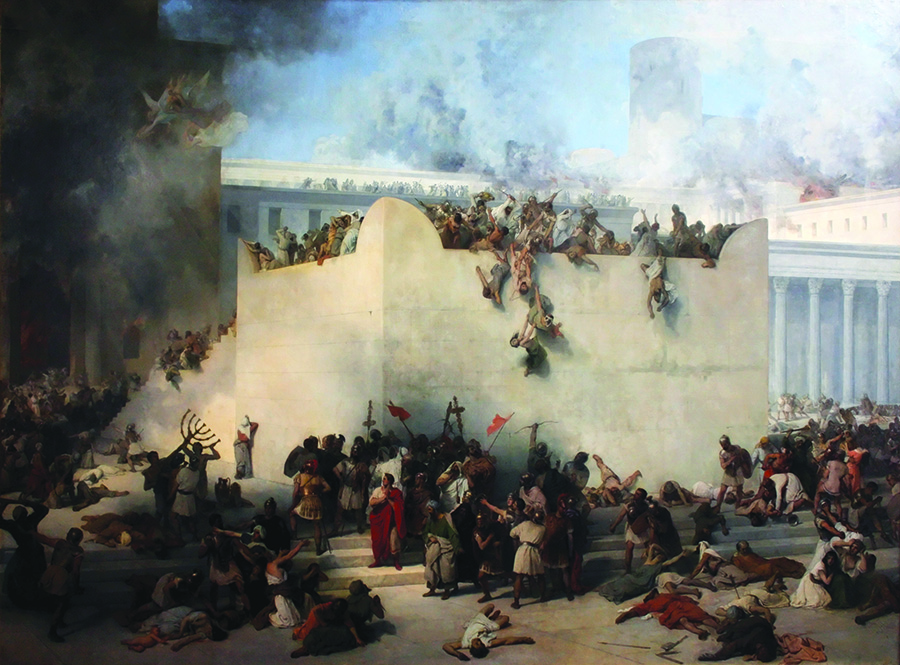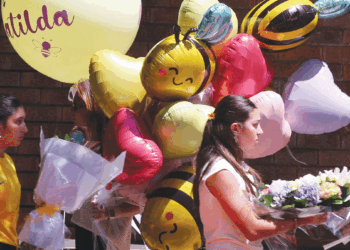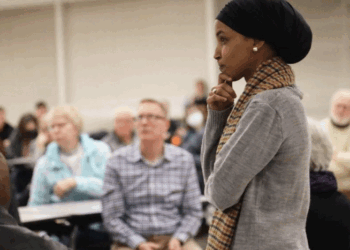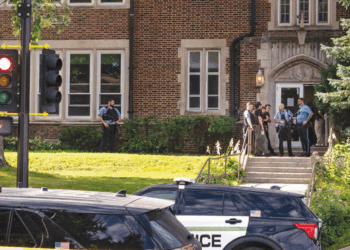
“The saddest day in Jewish history is the ninth of Av, which falls some time between late July and mid-August,” writes Rabbi Joseph Telushkin in Jewish Literacy. “On this day, the Babylonians destroyed the First Temple in 586 B.C.E., and the Romans burned down the Second Temple in 70 C.E. The events commemorated by Tisha B’Av are so tragic that, two millennia ago, the rabbis ordained that Jews should refrain from most pleasurable activities from the beginning of the month during which Tisha B’Av falls. This date marks as well the day on which the Jews of England were expelled from that country in 1290.”
Telushkin also mentions that on the ninth of the Hebrew month of Av, the “greatest catastrophe of medieval Jewish history, the expulsion of the Jews from Spain,” took place. He speculates that King Ferdinand and Queen Isabella “sadistically chose the date to intensify the Jews’ misery and horror.”
On Tisha B’Av — which begins at sundown on Saturday, July 17 — Jews gather in a dimly lit synagogue sanctuary for the reading of Eicha (Lamentations), a horrific account of tortures and suffering penned by the prophet Jeremiah after the destruction of the First Temple. Like Yom Kippur, Tisha B’Av is a full fast day; and bathing, wearing leather shoes and perfume, and engaging in sexual relations are proscribed. In the synagogue, it is customary to sit on the floor rather than in a pew.
If you’ve never attended Tisha B’Av services, perhaps you should check it out. It’s a shul experience like no other.
Over the ages, Jews have suffered disputations, dispossessions, pogroms and mass annihilation in the Shoah. Europe has had a historical problem with “the other.” And now we read about the rise of antisemitism in the United States and around the world. The most recent Israeli war in Gaza was the spark for some incidents that were captured on video and spread via the internet. Much was made of Palestinian activists physically attacking Jews in Los Angeles and New York City. Of course, these actions were brutal and should be categorically condemned. And attacking Jews in the Diaspora is certainly counterproductive to the movement for Palestinian freedom.
The point here is that the sky is not falling on the Jewish community in America. I’m mindful of the Oct. 27, 2018, massacre of Jews at Tree of Life – Or L’Simcha Congregtion in Pittsburgh, which was the deadliest attack on the Jewish community in this country. And three months later, another right-wing maniac perpetrated a fatal attack at Chabad of Poway, a shul in southern California. These incidents remind us that Jew hatred is alive and that some benighted individuals still regard “the Jews” as the source of their real and imagined grievances against society.
Still, the Jewish community is free to worship and celebrate in America. During a recent outing to Minnehaha Park, a family meal at Sea Salt, the restaurant in the old refectory building, a shiva was taking place nearby. In the pandemic, the outdoors location made sense and provided solace for the mourners. And there was no untoward behavior toward those involved in this public Jewish ritual.
At the same time, the ADL and other organizations have been beating the drum about antisemitism. And it should be pointed out that Jew hatred is the health of some Jewish groups. Stirring fears about Jews in peril can prompt some of our coreligionists to open their wallets and contribute to their Jewish defense group of choice.
Getting back to the mournful observance of Tisha B’Av, I got an email from Rabbi Arthur Waskow, of The Shalom Center in Philadelphia. Waskow, who has been campaigning for peace and justice over many decades, proposes “Tisha B’Av for Temple Earth” (#TishaBAv4TempleEarth), a contemporary twist on the ancient holiday.
“We call upon Jews this year to intertwine on Tisha B’Av… the traditional lamentation for the ancient destruction of two holy Temples with our grief and sacred action in response to the worsening danger to Temple Earth — the survival and integrity of many species and many human communities,” he writes.
“We encourage Tisha B’Av gatherings to include passages of sacred text, art and music, old and new, celebrating our love of Planet Earth, mourning the forms of its destruction, and committing us to act for its protection and renewal.”
Waskow’s Tisha B’Av manifesto, which is signed by a dozen or so other rabbis, urges a variety of political actions and civic projects in defense of planet Earth, which is buckling under the stress of human civilization. We know that the climate crisis poses an existential threat to human survival; however, we tend to avoid letting our thoughts dwell on this grim reality.
If you’d like to learn more about Tisha B’Av, go to: bit.ly/waskow-tishabav.
Mordecai Specktor / editor [at] ajwnews [dot] com
(American Jewish World, July 2021)



















